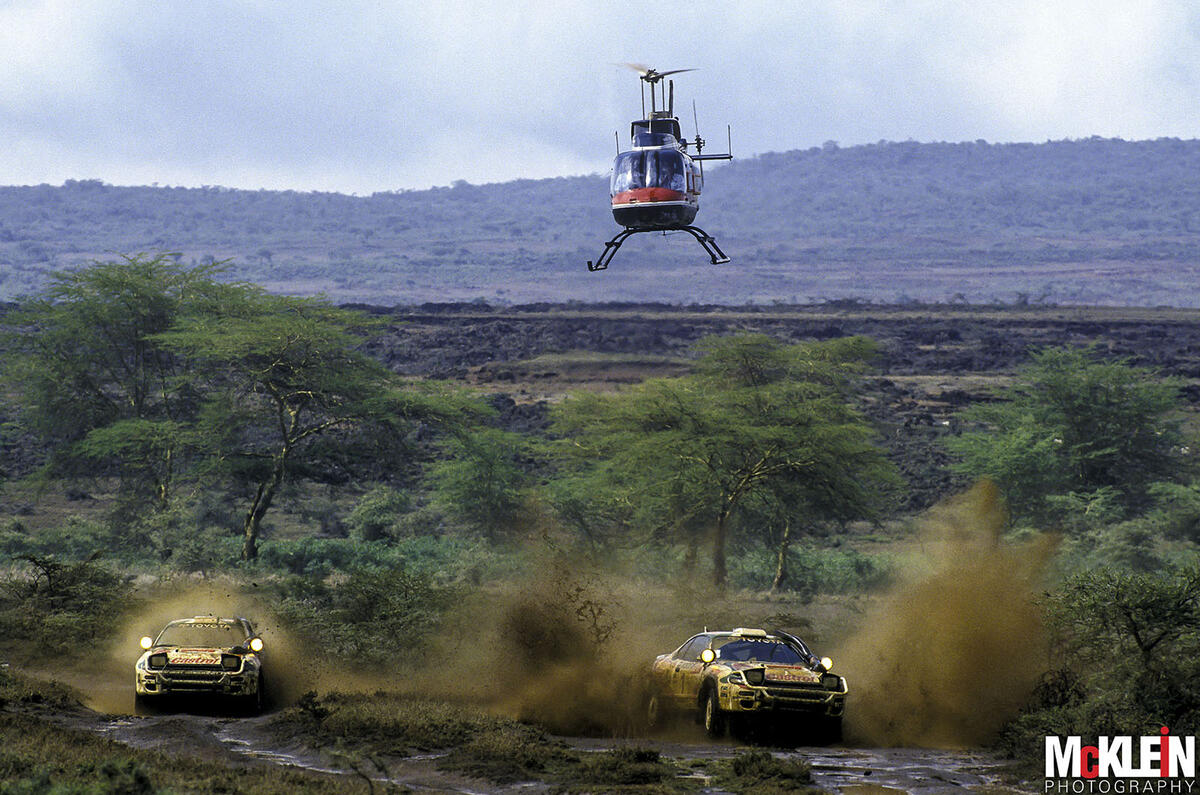Some people say the World Rally Championship has lost its sense of adventure.
And when you consider there was once an event that was so rife with peril – oncoming local traffic, giant hidden boulders, holes in the road that could swallow a car whole, giraffes, elephants – that the only way to compete with any degree of safety was to be tracked the whole way by a helicopter, it’s hard to argue otherwise.
You’ll still find helicopters on WRC events today, both for filming and to get a signal from in-car trackers, but nothing on the scale seen on East Africa’s Safari Rally. The event was last part of the WRC in 2002, when the Prodrive-run Subaru World Rally Team team was at its peak. Since the Group B era of the 1980s, it had been protocol for the top teams to assign each car its own spotter helicopter, due to the event’s vast uncontrolled stages. It was “hideously expensive,” according to Paul Howarth, the Subaru team’s former operations director, “but bloody exciting.”
Howarth flew in Petter Solberg’s spotter chopper on four occasions: “During the rally there would be the pilot, myself and a very experienced paramedic in the helicopter, because if Petter had an accident we would be first on the scene.
“The Safari was the only rally held on open roads, so you would get local traffic on the stages. We were there to warn the locals a rally car was coming, to relay instructions from the engineers and to clear wildlife out of the way. You could scare most animals away but the donkeys would just stare at you. You could virtually put the skids on top of them and they wouldn’t move.
“On some parts of the rally the car would be climbing over rocks at 20kph, so you spent a lot of time in hover. Then in the fast sections you had to be 500 metres in front, looking for hazards.
“It was one of the most memorable experiences I’ve ever had. It was like you were actually doing the rally. The wildlife was incredible too.”
Just how essential were the spotter helicopters, though? Nicky Grist, who won the event three times as Colin McRae’s co-driver, recalls two occasions that highlighted their importance. “During one particular test we didn’t have a helicopter,” he recalls. “We were driving over a plain and came around a left-hand corner when all of a sudden, Christ, there was a giraffe. It was running with us, but running across us at the same time. One hoof came right up to the window on my side. Fortunately it veered off at the last moment.



Join the debate
Add your comment
Amazing excess,,,,,
....but this is not Rallying, where the unexpected is always expected.
This is more F1 level of pointless excess.
Real men real rallying....?
This was dangerous but as we’ve read it was fun, todays safety first and timed sections which vary little over the Day is boring, these Guys were on Public a Roads not really knowing what was round th3 Corner or over that crest, they trusted there spotters kept there foot firmly planted on the throttle for miles and miles!......